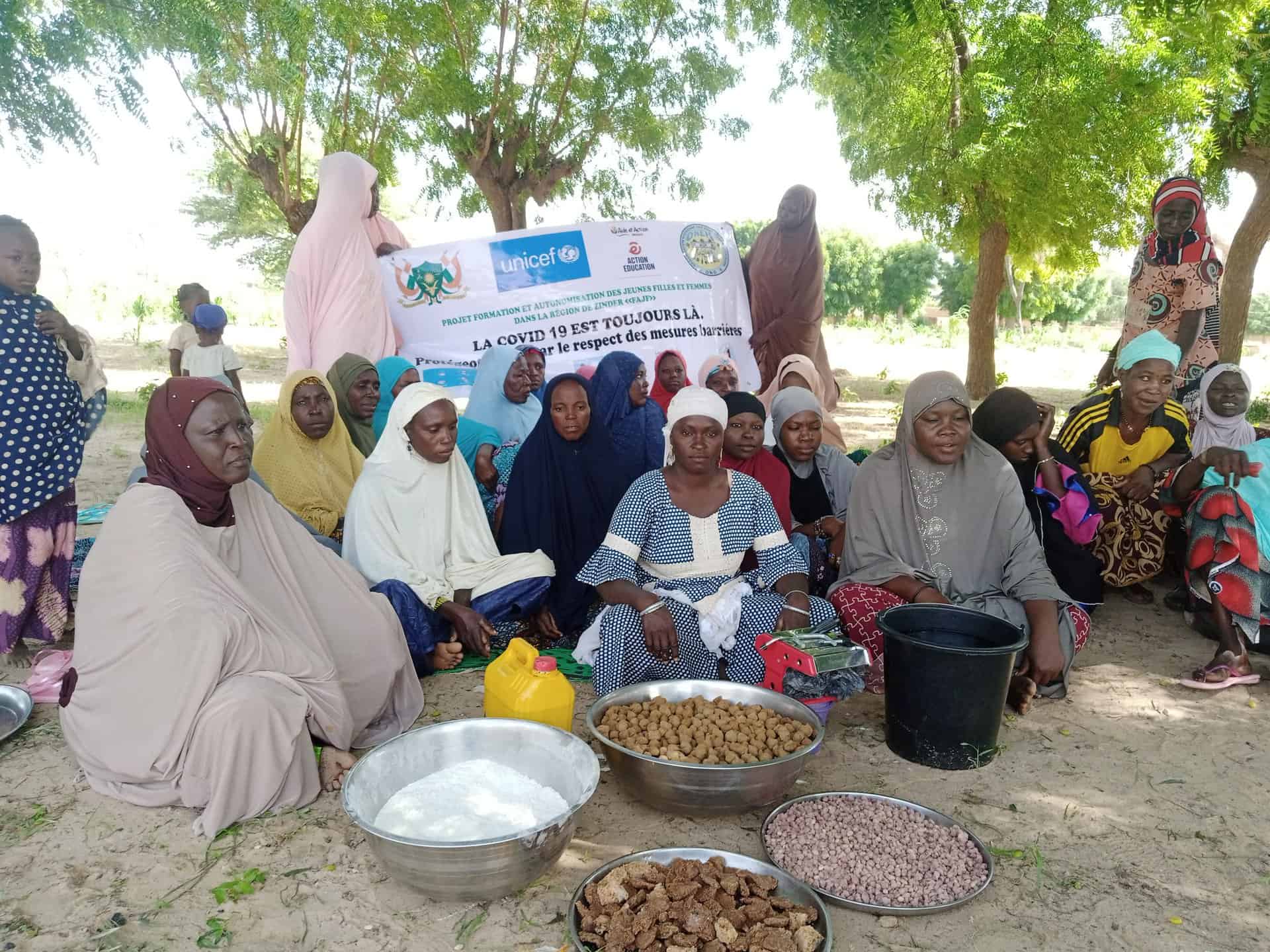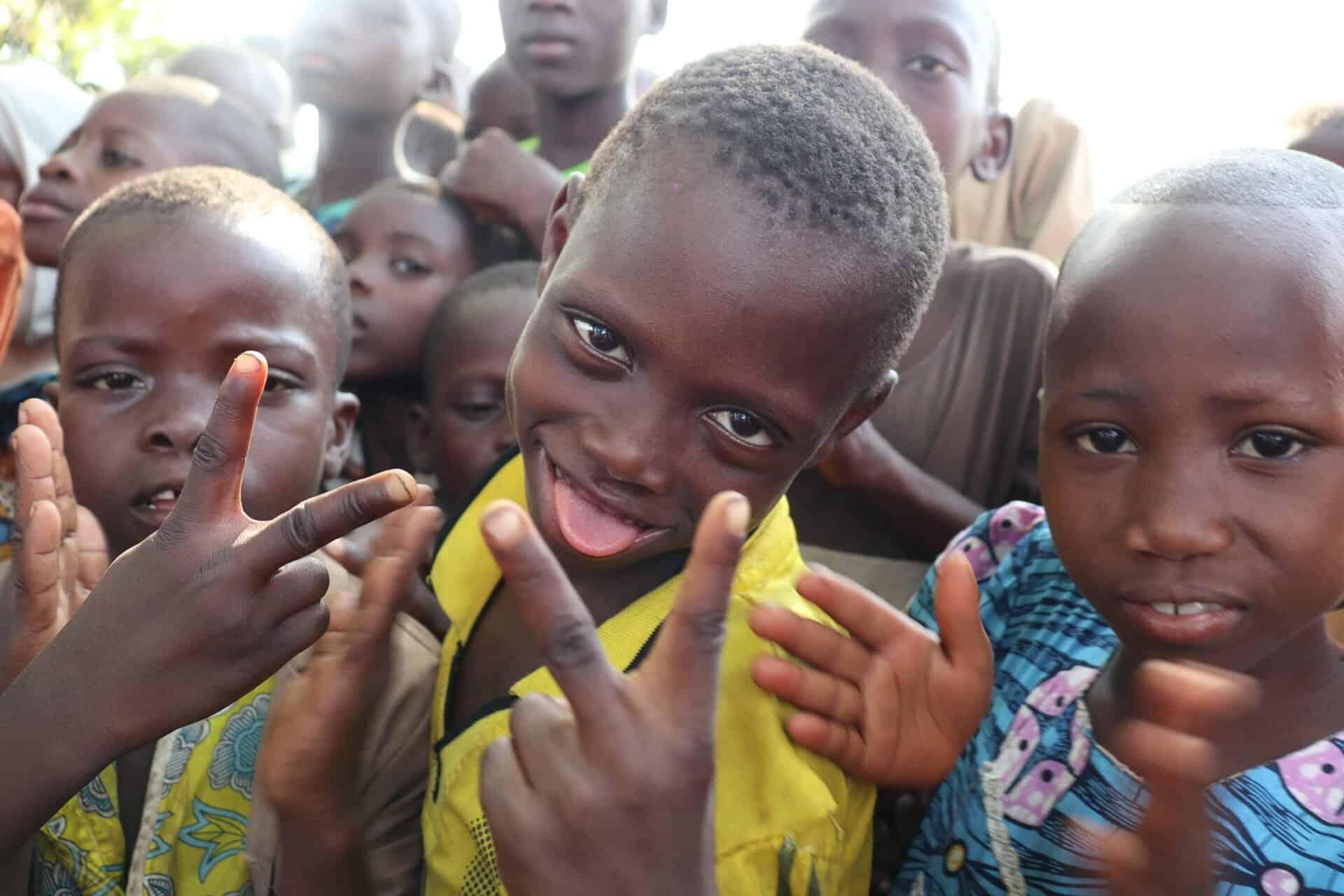Photo credit: Isabelle Merny
In the Centre West region, as in other regions of Burkina Faso, socio-cultural constraints and certain practices are not conducive to the success of girls in school. Through the Scolarisation des Filles (SCOLFILLE) project, Aide et Action and L'Occitane Foundation have decided to strengthen access, retention and completion of primary education for 2000 girls.
In order to improve the situation of girls in Burkina Faso in a sustainable way, the L'Occitane Foundation and Aide et Action, long-time partners, have committed themselves through the SCOLFILLE project. This project will promote the access and promotion of vulnerable girls to primary school in the provinces of Ziro and Sissili, in the Centre West region of Burkina Faso. Our common ambition is to accompany 2,000 girls on their way to academic success. These girls are mainly from poor or displaced families, orphans or living with a slight disability.
A difficult context, especially for girls
In Burkina Faso, primary school enrolment indicators fell considerably between 2017 and 2020. This decline is explained in particular by the socio-political and security situation that the country is currently facing. Indeed, the crisis has led to the closure of more than 2,000 schools and the internal displacement of more than one million people, including more than 50% (585,728) young people under the age of 14.
Moreover, the analysis of socio-cultural realities in the Centre-West Region reveals perceptions and practices that are not very favourable to girls' success in school. For many families, girls' schooling is still considered to be of little importance, and the persistence of certain traditional practices such as dotes, abduction and gender-based violence do not improve the situation. Finally, the lack of consideration for specific problems inherent to their status within schools is an additional obstacle. These include the issue of menstrual management, the lack of adequate places for their intimate needs, etc.
Providing an appropriate response
Thanks to our project, girls of school age will be enrolled in the first grade, girls who are at risk of dropping out of school before the end of the cycle will be supported, and older girls who are not enrolled in school or who dropped out early will be able to benefit from an innovative system of accelerated classes. This allows them to accumulate the modules of the first three years of the primary cycle over a period of nine months, and thus to enter the CE2 class directly.
School-related costs such as Annual fees and supplies will be covered and the nutrition of children in schools will be improved by supporting the operation of their school canteen. In addition, we want to encourage families living in extreme poverty to increase their income through subsidies and intermediation with microcredit institutions to set up or develop income-generating activities.
Removing barriers to girls' schooling
Within the framework of our intervention, approximately 180 teachers will be trained to enable the setting up of specific support courses for girls. Finally, awareness-raising sessions for communities and girls will be carried out in order to contribute to the removal of obstacles to their schooling (early marriages and pregnancies, reluctance of family and friends, self-censorship, etc.) and to lift the taboo associated with menstruation (distribution of sanitary protection, rehabilitation or construction of latrines in schools, etc.).
For a period of five years, the SCOLFILLE project is part of our international campaign "Education for Women Now"("Education for Women is Now!") which promotes various educational projects for 3 million marginalised women and girls worldwide by 2025.
It will specifically affect 2810 people in Burkina Faso, including 2000 girls, 180 teachers and 630 members of community school co-management bodies. In addition, the project aims to support 500 families in a precarious economic situation. Thanks to its support, the L'Occitane Foundation gives our teams the means to make a lasting difference in order to offer new opportunities for the future to Burkinabe girls.






